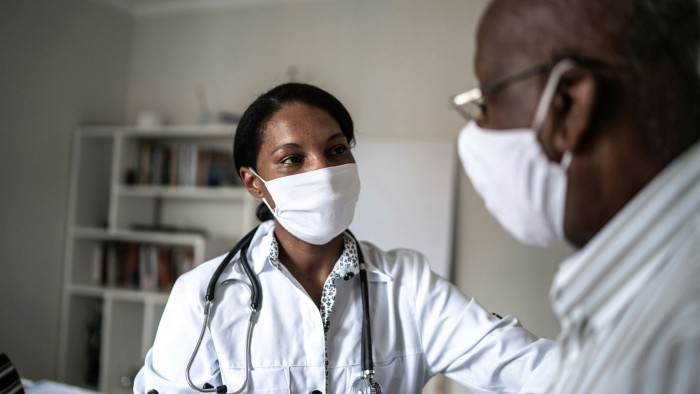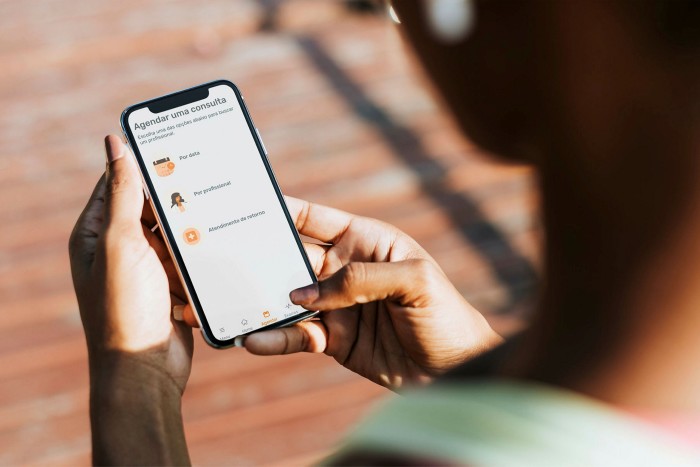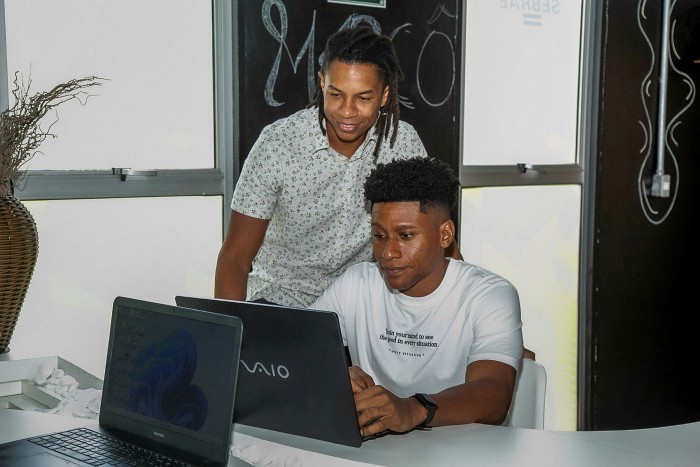Brazil demands for diversity boost black patient-focused platform

Simply sign up to the Technology myFT Digest -- delivered directly to your inbox.
For most of his life, Igor Leo Rocha has suffered from folliculitis, a bacterial condition whereby hair grows back into the skin when it is cut, causing painful inflammation. Common among black men, it is often treated mistakenly as acne — and Rocha’s case was no exception.
He lives in Salvador, a coastal city in Brazil where the majority of residents are of African descent. Even so, no dermatologist he consulted there was able to properly diagnose and treat the problem.
Rocha, a journalist, says many doctors he saw prescribed “strong medication that made it worse. I then realised my problem was specific to black skin and that I had never been seen by a black doctor.”
Meanwhile, Rocha’s partner, Arthur Lima, a dentist, noticed a demand for medical services that met the needs of black patients. “I was asked for suggestions of black dentists for a patient who felt she had been discriminated against by a white dentist,” says Lima.
So Lima and Rocha turned to technology and, in 2019, founded the AfroSaúde platform. “We connect black professionals and patients seeking representativeness and diversity in care, as well as non-black patients who might want to use the platform,” says Lima.

AfroSaúde has so far enabled 2,000 patients to find and book consultations with nearly 1,000 black professionals in Brazil, including medical practitioners, dentists and therapists. Payment for the consultations is made through the AfroSaúde platform, which takes a commission.
As well as increasing the visibility of black medical professionals, the start-up aims to address other deep-rooted problems in the country’s healthcare system.
Non-white Brazilians — who make up about half of the country’s 210m population — have reported veiled or overt racism during medical consultations, such as the assumption that black people are more resilient to pain, says Lima.
Research by the Brazilian ministry of health suggests black Brazilians are less likely than white patients to seek medical advice when ill, because of factors such as fear of discrimination and longer waiting times.

As the Covid-19 pandemic has shifted many healthcare services online via technology such as telemedicine, AfroSaúde has followed suit. “Even though we are now seeing a return of in-person consultations, all appointments booked via our platform are happening online,” says Rocha.
To overcome the problem of poor internet coverage in remote regions, AfroSaúde’s video consultations — which take place via a browser or app — can be adjusted for low bandwidths.
Government research suggests that three-quarters of Brazilians rely on public healthcare but will still pay for private consultations when their problems cannot be solved in the public system.
AfroSaúde is targeting that audience by offering psychotherapy services through its app, as well as content for corporate users — such as videos and newsletters on mental healthcare. An artificial intelligence-enabled chatbot to provide health-related educational content is also on the horizon, says Lima.
The start-up is engaged in social impact initiatives, as well, he says, including a project to improve access to primary and specialist care in the public healthcare system. The project will entail automating tasks such as medical consultation bookings via a digital platform.
AfroSaúde has received support from a pool of backers, including Google’s Black Founders Fund and non-profit group the We Are Family Foundation.
According to Maitê Lourenço, a psychologist and chief executive of BlackRocks Startups, a Brazilian innovation hub focused on tech businesses led by black entrepreneurs, there is a growing demand for racialised healthcare services in Brazil. “[Such services] are crucial because of the specific requirements we have as a consequence of racism in our everyday lives — and digital technology plays an important role in broadening access to care,” she says.
But Brazil’s technology sector must itself tackle systemic racism to allow more businesses such as AfroSaúde to emerge and thrive, says Lourenço. “Digital innovation in healthcare in Brazil tends to be aimed at wealthier audiences and led by white male founders, who in turn attract more investment.
“This leads to a shortsightedness in business development and innovation, and brings significant challenges to [black-led] disrupters, since they need capital to grow and reach broader audiences.”

Comments